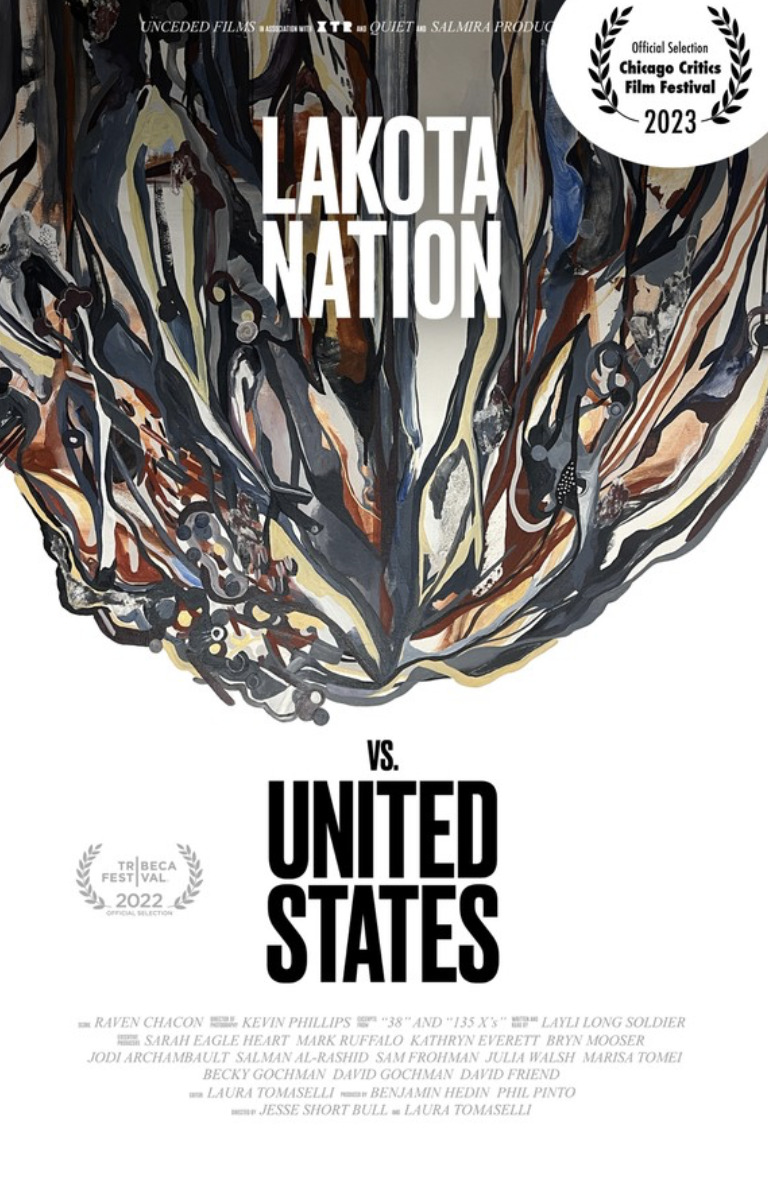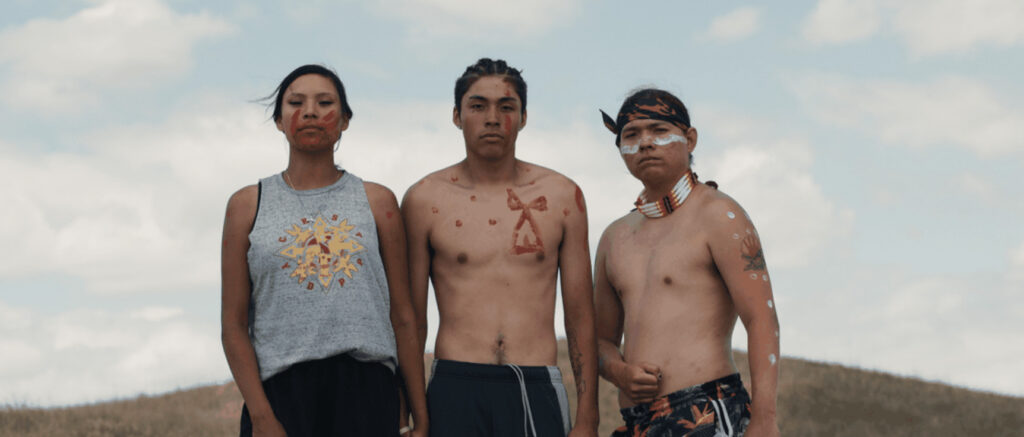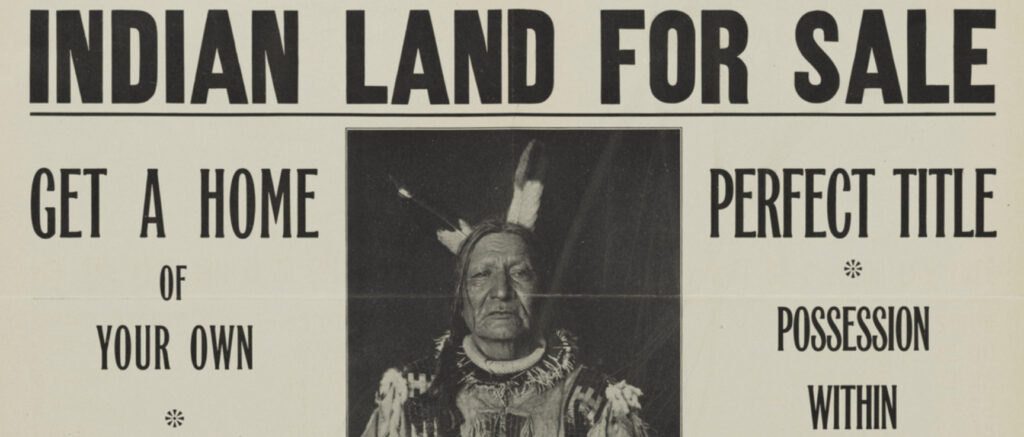
Cultures being able to relate to and trusting each other is one of the most important aspects of societies being able to thrive alongside each other. But with the U.S. government long marginalizing Indigenous tribes, American society is now working to honor the tribes’ identities. The new documentary, Lakota Nation vs. United States, is an emotional testament to the strength of the titular tribe and a visual rejoinder to the long-distorted image of their culture in the media.
The film was directed by first-time Oglala Lakota helmer, Jesse Short Bull, and documentary editor, Laura Tomaselli. Oglala Lakota poet, writer and activist, Layli Long Soldier, penned and narrated the movie.
Lakota Nation vs. United States was executive produced by Sarah Eagle Heart, Mark Ruffalo and Marisa Tomei, and produced by Benjamin Hedin and Phil Pinto. The documentary features Nick Tilsen, Phyllis Young, Milo Yellow Hair, Nick Estes, Krystal Two Bulls, Henry Red Cloud, Candi Brings Plenty, Alex Romero-Frederick, Craig Howe and Mary Kathryn Nagle.
One of the greatest injustices ever committed on North American soil is examined in sweeping historical detail in Lakota Nation vs. United States. The film shows that when American settlers moved west, the U.S. government signed treaty after treaty with Lakota and other Indigenous tribes, only to continually break their legal and moral commitments with complete impunity. As traditional Lakota lands, including the Black Hills in South Dakota, shrink under impingement, exploitation and genocide, a new generation take a new stand against their oppressors.
Bull and Tomaselli generously took the time last week to talk about co-helming and editing Lakota Nation vs. United States during a Q&A at Manhattan’s Roxy Hotel. The interview was moderated by Ruffalo.
The filmmakers spoke about making the documentary to help promote its screening during Doc NYC this Wednesday, November 15 at 9:00pm ET at Manhattan’s IFC Center. The movie is also now streaming digitally on such platforms as Prime Video, Apple TV, Google Play and AMC+, courtesy of IFC Films.

Mark Ruffalo: When a movie comes out, the culture has to be ready for it, and there has to be a place for it to take hold. Do you think this is the right time for Lakota Nation vs. United States?
Jesse Short Bull: Yes, I do Mark. The reason I say that is because I myself didn’t feel worthy to tell the story of the Oglala Sioux treaty in The Great Plains in North Dakota and South Dakota. I didn’t think that it was something that I could ever do justice to.
The odd thing about whatever the mystery of life is, is that somehow, things kept pushing me to this story. The catalyst was really our producer, Benjamin Hedin. But I recognize his curiosity as a person not from South Dakota, and realized that if he had that curiosity, others would also have that curiosity.
The forces at work kept pushing my intuition. I listened to it, and everything kept lining up. So I do firmly believe that there are forces at play that have helped bring this film forward. We’re grateful for everyone who has helped contribute to the cause, even everyone here, and in general, who have taken the time to watch this documentary.
Mark Ruffalo: Laura, you have done several docs; you’re an editor and director. This story is told in a totally unique way. How did you find your way through the editing process of this film to build such a beautiful story?
Laura Tomaselli: It was really easy. The first of the two poems that are featured in the movie by Layli Long Soldier is ’38.’ There are lines in the poem that read: “I may jump around and I may not go in chronological order. I’m not a historian.”
So there are things like that that gave me license to both follow parts of her poems completely literally. I also expanded on a lot of what she’s doing in those poems and applied it to film, Hollywood tropes and circular storytelling. We worked together to make a cinematic language that fit the type of story we were trying to tell.
Mark Ruffalo: If the United States is trying to right these wrongs, what would be the proper thing to see happen?
Jesse Short Bull: Thank you Mark. I know a lot of us are stressed out. We see a lot of things, and there’s a lot of news that’s easy to see despairingly.
I think what’s presented to us moving forward is that there are some of these challenges that we have to try to do something about. I know for our relatives back in the homelands of South Dakota, they want to see their land.
The money doesn’t mean anything to them. I don’t care if it’s $5 billion or how many billions of dollars; they’re still holding strong.
They have been holding strong ever since the time of warfare. We have always kept our end of the bargain on that treaty. The tribes have kept the treaty as a sacred document. We’re just waiting.
I do think that for the first time since those dark days of warfare, bloodshed and violence, there is a little sense of optimism. How that can look, whether it’s making the Black Hills tribal land again, or bringing the tribes into the management of the Black Hills, is still to be decided.
But there are steps that can be taken. At the end of the day, we have to do that. I think that’s something we can all participate in, even if you’re not from Lakota country, or don’t know a whole about it.
It may come to the point where we need some help and support. I think that will be special, and can be something we can all be proud of, if we’re ever given the chance to do that.
Mark Ruffalo: I agree. I think this is a subject matter that we can spend a lot of time talking about. Thank you both for making such a beautiful movie.
Laura Tomaselli: Thank you all for coming.

Here’s the trailer of the film.

